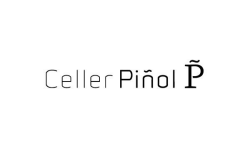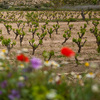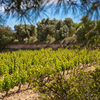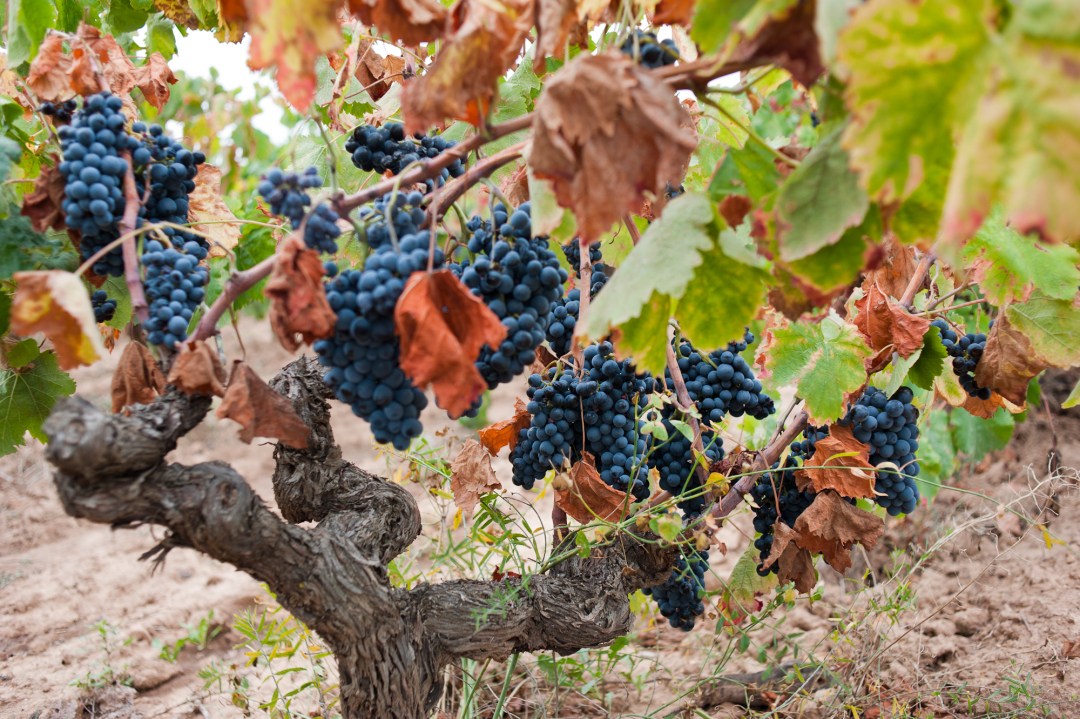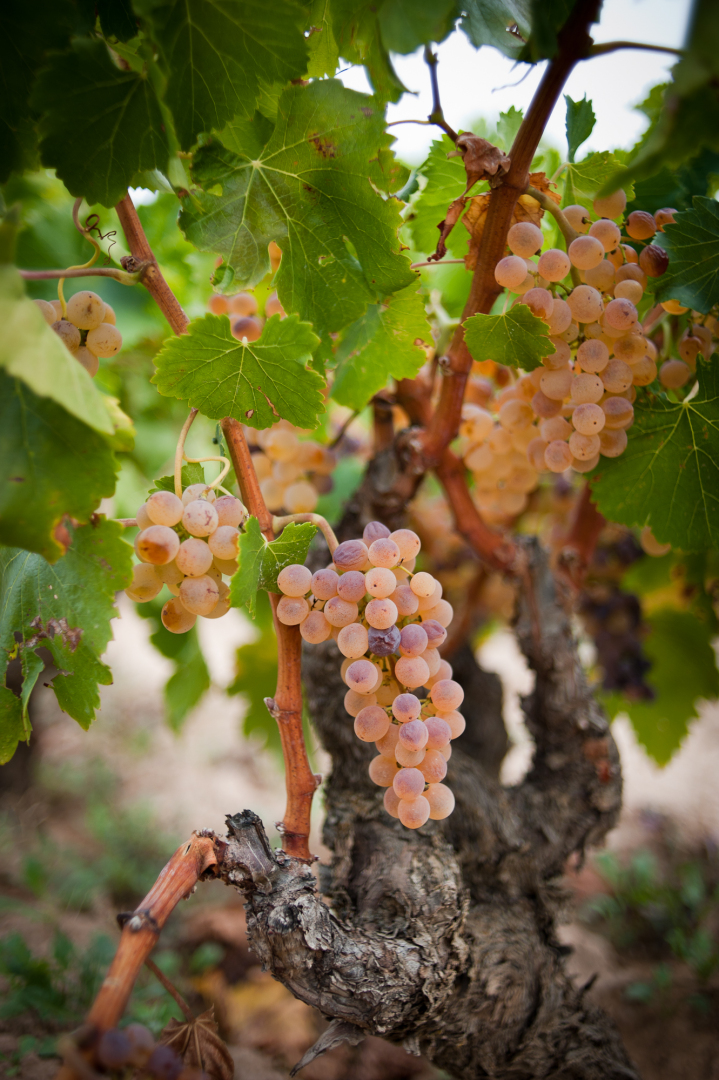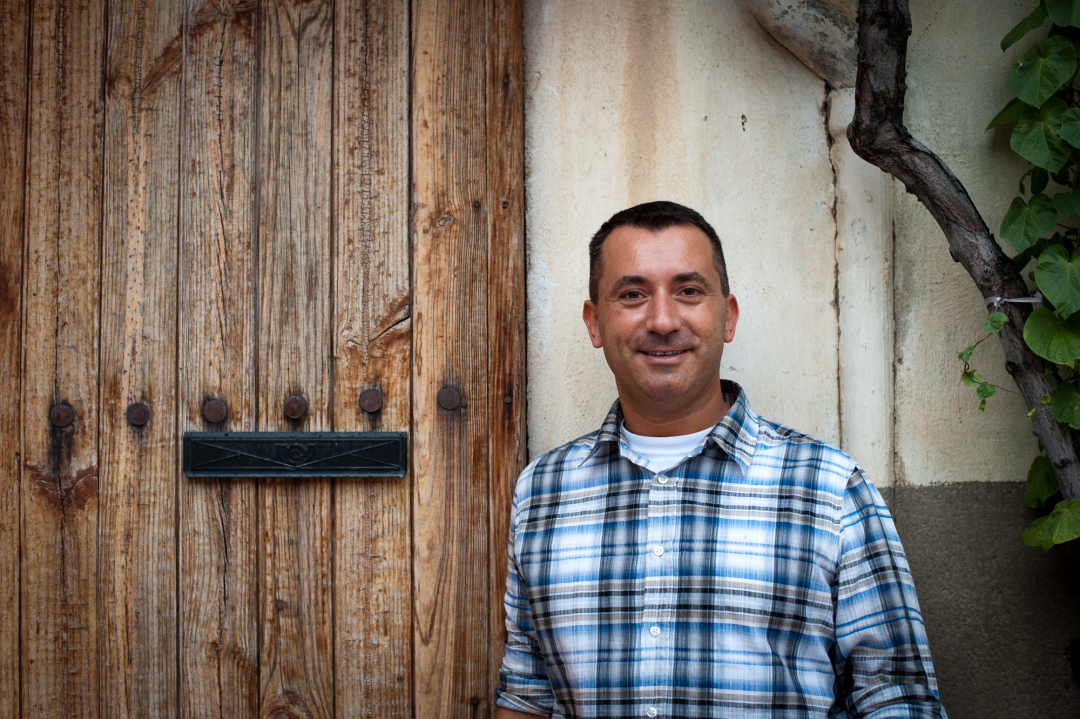Celler Pinol
The Piñol winemaking story begins with the great-grandfather Arrufí, who made wine for home consumption from vineyards around the village of Batea. When his daughter, Teresina, married Juan Piñol, the family’s adventures in winemaking grew in earnest, with Juan and Teresina leading the cellar from the 1940s until the 1990s. At 104 years old as of the 2021 harvest, Juan has always been a fixture at the winery—and always smartly dressed as he fulfills his “quality control” tasting duties! When Teresina passed, her daughter Josefina (along with husband Josep) insisted on not only continuing the cellar but growing it; her bold efforts saved Celler Piñol from extinction during an era of co-ops and internationalization and brought the winery into the fine wine trade.
Under Josefina’s sharp business management, Celler Piñol released its first commercial vintage in 1995: 2000 bottles of L’Avi Arrufí Blanc, a 100% Garnacha Blanca. The family’s fourth generation, Josefina’s son Juanjo, joined the business in 2000 after leaving behind a career in chemical engineering—although he leans on this experience as a member of the winemaking team. While taking sommelier courses, Juanjo met the famed wine consultant Toni Coca, who has worked around northeastern Spain for three decades, and has consulted for Celler Piñol since 2007. The full-time winemaker at Celler Piñol is another dynamic, passionate young woman: Cristina Borrull, who joined the winery in 2018. With a strong winemaking team leading the daily cellar operations, Juanjo can place his boundless energy into his primary role as export manager: sharing Piñol wines with trade and consumers as he travels around the world.
Philosophy
The winemaking philosophy at Piñol reflects generations of input and collaboration among the family: the present-day winemaking team of Cristina Borrull, Toni Coca, Juanjo Galcera Piñol, with input from Josefina and Juan. White winemaking at Piñol is centered around Garnacha Blanca, with the goal of sharing its different facets and personalities—and the terroir of a single vineyard in the case of L’Avi Arrufí. Because most of the red wines are blends, the winemaking approach can differ based on whether Garnacha or Cariñena is taking center stage; the former tends to be rounder and has a more glycerin profile with silkier fruit, while the latter has higher acidity and more rustic tannins.
Winemaking techniques at Piñol reflect the winery itself: it leans on tradition but embraces modernity. It is clean, spacious, and bright, with stainless steel tanks used for many of the wines’ initial fermentations, an array of barrels from two beloved French coopers, and even a concrete egg that is used for the flagship white wine. The techniques are minimal fuss and have been established over decades as the winery has evolved; for instance, all grapes are gently destemmed, and blends are always harvested and fermented separately, allowing each varietal to be made according to its unique personality. The average yearly output at this small winery is 650,000 bottles, and production is split 50-50 between red and white wines, although the family anticipates increasing white wine production in the coming years.
Biography
Terra Alta is known for its cold winters and later harvest, and the gentle snowmelt here kick-starts the spring and summer growing season, making it easier to farm with little irrigation. Additionally, the limestone-rich soils are deeper and more homogenous than in neighboring Priorat or Montsant, resulting in wines that have less vintage variation. With only 6,000 hectares of vineyards scattered around the slopes and valleys of the area, this accessible region is starting to catch on among outside winemakers in search of great terroir; two dozen wineries have joined the pioneering Piñol family in Batea alone over the last two decades, up from just a small handful at the time of their founding.
Celler Piñol produces around 13 different bottlings at their winery, with a mix of white, red, some rose, and even some special dessert wines known as mistela.
The Piñol family helped to revitalize the grape starting in 2005 and have begun planting 4 new hectares of Morenillo using massale selection cuttings from their original site, which is over 75 years old and dwindling in yield. Some other wineries in Terra Alta work with this grape in blends, but the 3000 bottles produced from Piñol’s Morenillo vines reflect the only monovarietal bottling to be found. Celler Piñol has received recognition for many individual wines and has also received special acknowledgement in Jancis Robinson’s Wine Grapes for their stewardship of Morenillo.
Wines from Celler Pinol
Contact Us

